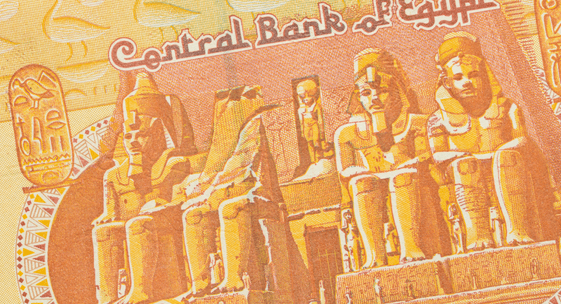The International Monetary Fund (IMF) said Tuesday that Egyptian authorities need to make “decisive progress” on fiscal and structural reform as well as foster private-sector development, as the North African country seeks a new loan to bolster an economy battered by fallout from Russia’s war in Ukraine.
The fund noted “Egypt’s remaining vulnerability from a high public debt burden and large gross financing requirements,” its executive board said in a statement after it met to evaluate a $5.2 billion stand-by arrangement agreed with the country in 2020.
“Decisive progress on deeper fiscal and structural reforms is needed to boost the economy’s competitiveness, improve governance, and strengthen its resilience against shocks,” said the IMF.
The Washington-based lender said that reforms should also promote private sector development and reduce the role of the state in boosting the economy.
Earlier in July, the IMF said that it held productive discussions during a staff visit to Egypt on economic policies and reforms to be supported by an extended fund facility (EFF). This comes at a time when the Arab world’s populous nation has ramped up efforts to fight inflation, including the central bank’s decision to devalue the local currency in March as it reels under new financial pressure from the war in Ukraine.
The country has received financial assistance from the IMF three times in recent years, borrowing $12 billion under an EFF in November 2016, $2.8 billion under a Rapid Financing Instrument (RFI) in May 2020 and $5.2 billion under a Stand-by Arrangement in June 2020.
The IMF said that the board’s evaluation “should inform the ongoing discussions on the fund’s future engagement with Egypt.”
Social support
Egypt plans to add one million families to a social safety net program that provides cash transfers, bringing the total number of beneficiaries to more than 20 million, the presidency said in a statement Tuesday.
The “Solidarity and Dignity” program began in 2015 with World Bank funding. Payments to families start at $18.50 (EGP 350) per month and are conditioned on children’s school attendance. The country secured a $500 million (EGP 9.4 billion) loan from the World Bank last month to boost food security.




